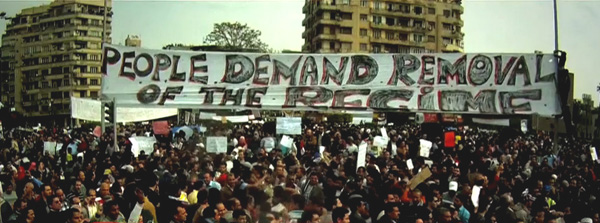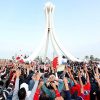For decades, much has been talked and written about the ‘Arab exception’ due to the fact that the waves of democratisation that swept over southern and eastern Europe, Latin America, South-East Asia and Africa stopped short at the Maghreb and the Arab Middle East[1]. Many have sought to find an explanation to the phenomenon. The inability of Arab societies to make a transition from authoritarian political systems to democratic ones has been explained in two ways: (1) as a result of religious and cultural constraints that are difficult to change; and (2) due to economic and geopolitical factors that can change over time.
Those who favour the ‘religious or cultural exception’ adduce that Arab-Islamic culture is essentially patriarchal and authoritarian and that it promotes values such as obedience and submission to the community. According to this view, Islam and Arab culture necessarily run counter to the values of individualism that are the basis for principles such as human rights and civil and political rights. As a demonstration, it is noted that in Arab countries power is usually centralised, deeply hierarchical and dependant on a paternal figure to whom his subjects defer. It is also brought to mind that these features are present in both nationalist and Islamist ideological discourses.
Those who see an ‘economic and geopolitical exception’ in the Arab world focus on two realities: (1) the rentier character of most of their economies, either from oil rents or foreign aid; and (2) the international powers’ enormous interests in the region, which make it the scenario of fighting, interference and military intervention. According to this explanation, rentier economies do not depend on the taxes collected from their citizens but rather that the latter are dependent on the State due to its capacity to dispense resources, employment and privileges. It is also stressed that rentier countries devote large amounts of money to maintain powerful security and repression apparatuses that supress or buy out local reform movements.
The geopolitical considerations linked to oil, Israeli regional supremacy and the threats emanating from the region (currently Jihadism but previously the advance of Communism) are employed to explain the so-called ‘Arab exception’. From that perspective, the regimes in the region that ally themselves to the major powers obtain in exchange sufficient economic, military and diplomatic support to face up to local players demanding change and reform. To guarantee full control over their societies, some governments resort to restrictive and rigorous interpretations of religion. Additionally, foreign military intervention in countries such as Iraq, Syria and Libya have contributed to the militarisation of domestic conflicts and turned the struggle for greater rights into civil wars that make any prospect for democracy even more distant.
The antiauthoritarian revolts –known as the Arab Spring or Awakening– that broke out in late 2010 showed that there is a real demand for more rights and democracy in significant sectors of the population. Belonging to an Arab-Islamic culture was no impediment to millions of people demanding more freedom, a dignified way of life, social justice and good governance. The revolts –which were not initiated by Islamists–bore witness to a widespread rejection of the authoritarianism, corruption and political exclusion that are characteristic to Arab regimes. Social mobilisation was essentially the work of civil and youth groups that aspired to a better life and greater opportunities. To continue talking about the ‘Arab exception’ in cultural and religious terms following the wave of democratisation that began four years ago is, at best, mistaken.
Up against the social groups that demand democracy and the rule of law there are others that seek to strengthen authoritarian power and repressive structures. These include the old regimes, most of the Islamist sectors and sectarian forces. Similarly to any other society, Arabs have their own internal struggles and tensions between conflicting views on society and desirable political models. The disappearance of Arab authoritarian regimes is linked to the change in the balance of power between these opposing forces.
What has been confirmed by the four years of convulsive transitions in the Maghreb and the Middle East is that, for the time being, the ‘Arab economic and geopolitical exception’ remains in place. All the region’s monarchies and some republics –like Algeria– have sidestepped the wave of political transformations through public expenditure and more rentierism. Also through greater repression and ideological control. Military expenditure has surged, while spending on state services and employment has also risen with the object of keeping social unrest at bay. The funding of religious proselytism has also benefitted from high oil prices.
To date, the geopolitical dimension has decisively conditioned the evolution of the Arab Awakening. The resources devoted to funding and arming the parties involved in conflict have helped to militarise power struggles and to deepen the ethno-sectarian rifts throughout the region. The regional cold war between Saudi Arabia and Iran, foreign military intervention, the surge in extremist options such as Daesh (the self-proclaimed Islamic State), the muddled US policies in the region and the EU’s practical irrelevance are causing the collapse of several States and the blurring of some frontiers. Under these conditions, it is very likely for regional instability to increase and for the consequences to be felt throughout the neighbourhood.



